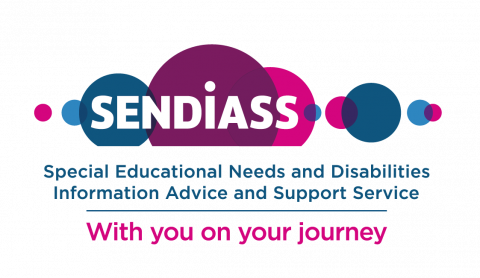SEN support in mainstream schools
Skip to:
About Special Educational Needs (SEN) support
Every child with Special Educational Needs can get SEN support. This is extra help that is different from the support given to other children of the same age.
The purpose of SEN support is to help children achieve the learning outcomes set for them by the school. Schools should involve parents in this process.
A mainstream school is a Council maintained or an academy school that is not specially organised to provide specialist education.
Every school must publish a report about the SEN support available. Ask your child’s teacher or the school’s Special Educational Needs Coordinator (SENCo) about the schools SEN support.
The council sets out what SEN support they expect early years settings, schools, and colleges to make available in Barnet's Local Offer.
Types of mainstream SEN support available
SEN support may include:
- a special learning programme for your child
- extra help from a teacher or a learning support assistant
- making or changing materials and equipment
- working with your child in a small group
- observing your child in class or at break and keeping records
- helping your child to take part in class activities
- making sure your child has understood things by encouraging them to ask questions and to try something they find difficult
- helping other children work with your child, or play with them at break time
- supporting your child with physical or personal care, such as eating, getting around school, toileting, or dressing
SEN support in mainstream schools
Your child will get SEN support at their school or college.
The support that we expect to be available in mainstream schools is described in The Ordinarily Available Educational provision document.
If your child needs more support than their school provides, they may need an Education, Health and Care (EHC) plan
What mainstream school must do for SEN pupils
Schools must:
- do everything they can to make sure that a child with SEN gets the support they need
- ensure that children with SEN engage in the activities of the school
- have a teacher responsible for co-ordinating SEN support, the SENCo
- inform parents when they are making special educational provision for a child
- publish a SEN information report and their arrangements for disabled children
Who decides what SEN support your child gets
Sometimes you may be the first to be aware that your child has some special educational needs.
If you think your child may need SEN support, you should talk to your child’s teacher or to the SENCo.
Teachers make regular progress assessments for all children.
If a child is making less progress than expected for their age and circumstances, the school should then decide if the child needs SEN support.
The school should talk to you and your child about this. If a young person is 16 or older the school should involve them in the decision.
What happens when your child is identified as having SEN
When the school identifies your child as having SEN, they should use a 4-step approach. These steps are:
Assess
- Teachers should work with the SENCo to assess your child’s needs, so that they can give the right support
- The school should involve you in this and, where possible, seek your child’s views. The SEND Code of Practice says schools should take seriously any concerns raised by a parent
- Sometimes schools will seek advice from a specialist teacher or a health professional. They should talk to you about this first
Plan
- If the school decides that your child needs SEN support, they must tell you
- The school should talk with you about the outcomes that will be set. They should tell you what help they will provide and agree a date for a progress review
Do
- Your child’s teacher is usually responsible for the work carried out with your child. They should work with any teaching assistants or specialist staff involved with your child
- The school should tell you who handles the support your child receives
- Anyone who works with your child should be aware of their needs, the outcomes sought, the support provided and any required teaching strategies or approaches
Review
- The school should review your child’s progress, and any difference the help given to your child has made
- Schools should meet with parents at least three times a year, on the dates agreed in a plan
- The school should involve you and your child in the review and in planning the next step
- Sometimes it helps to involve other professionals in further assessment or planning the next steps
- If your child has not made reasonable progress, it will be important to agree with the school what should happen next
- You and the school can look at the Local Offer to see what support is available that could help achieve your child’s outcomes
Getting more support
You can find out more about SEN Support from:
- the SEN information report on your school’s website
- your child’s teacher or SENCo
- Barnet's Local Offer
- Chapter 6 of the SEN Code of Practice

